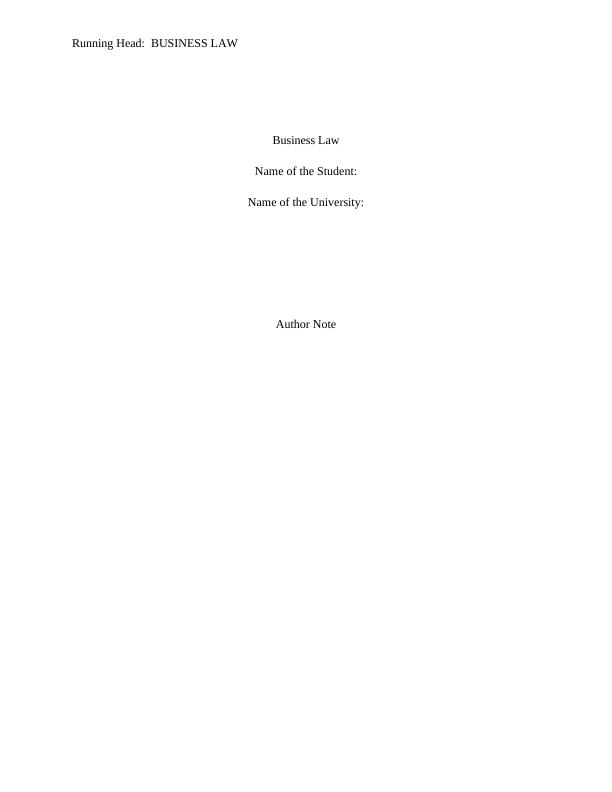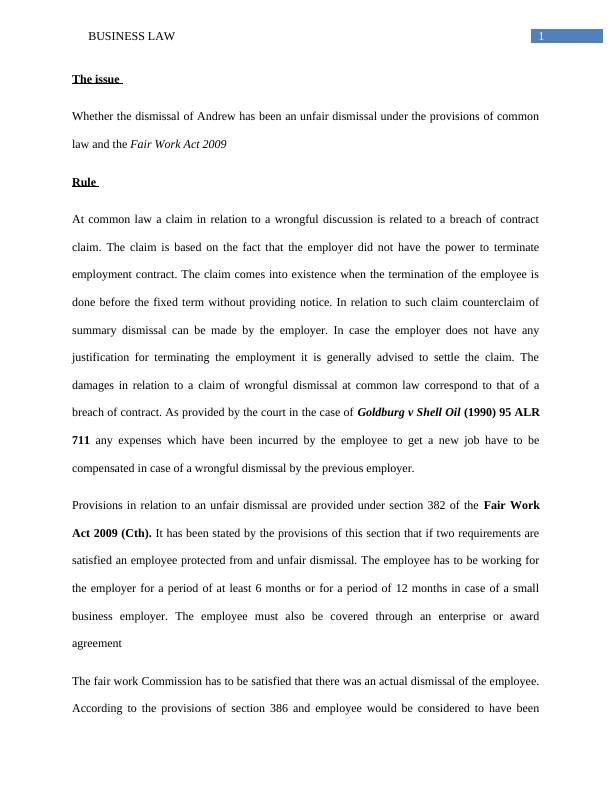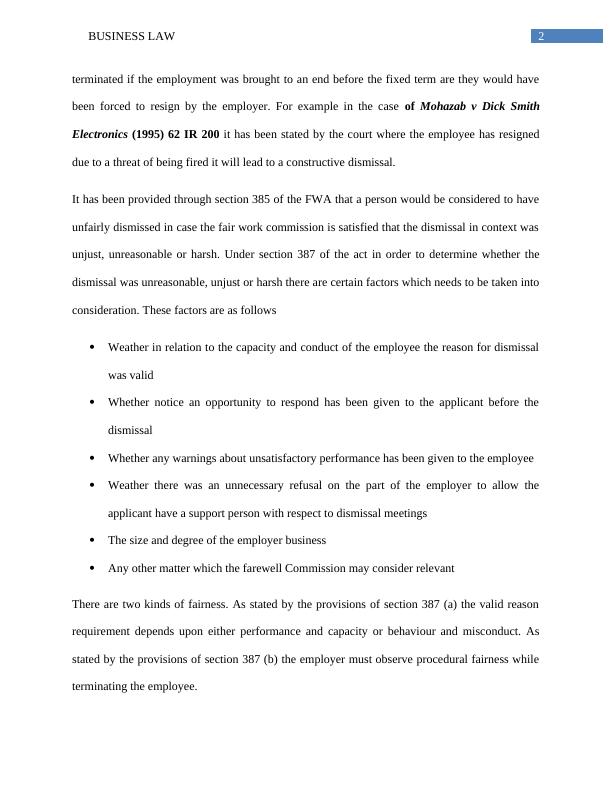Unfair Dismissal under Common Law and Fair Work Act 2009
7 Pages1761 Words403 Views
Added on 2023-06-11
About This Document
This article discusses the provisions of common law and Fair Work Act 2009 related to unfair dismissal. It explains the factors considered by the Fair Work Commission to determine whether the dismissal was unreasonable, unjust or harsh. It also provides relevant cases and their application. The article concludes with a case study of Andrew who has been dismissed by Monash University and wants to make a claim for unfair dismissal.
Unfair Dismissal under Common Law and Fair Work Act 2009
Added on 2023-06-11
ShareRelated Documents
End of preview
Want to access all the pages? Upload your documents or become a member.
Isobel's Claim of Unfair Dismissal and Termination by Barry
|9
|2116
|246
Unfair Dismissal Claim under Fair Work Act 2009
|7
|2370
|228
Unfair Dismissal Claims under Fair Work Act 2009
|4
|1191
|456
Unfair Dismissal Law and Employees
|10
|2788
|226
Australian Labor Law
|15
|2844
|458
Unfair Dismissal or Voluntary Resignation - Peter Blythe v. David Hartree Design Associates Ply Ltd
|4
|996
|73



